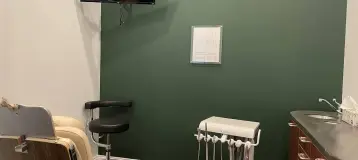Detailed Introduction
The Prosthodontics Specialty Practice at the University of Pittsburgh School of Dental Medicine is a distinguished center dedicated to the advanced care of patients requiring the restoration and replacement of missing or deficient teeth and oral/maxillofacial tissues. Located at 3501 Terrace St, Pittsburgh, PA 15213, this practice operates within an academic setting, combining patient treatment with resident training and faculty expertise.
Prosthodontics is one of the nine dental specialties recognized by the American Dental Association (ADA). A prosthodontist undergoes three to four additional years of rigorous post-doctoral training beyond general dental school, focusing on the diagnosis, treatment planning, rehabilitation, and maintenance of oral function, comfort, appearance, and health. This extensive training equips them to handle the most complex dental cases.
The services provided by the University of Pittsburgh's Prosthodontics Specialty Practice are comprehensive and include, but are not limited to:
Dental Implants: Planning, surgical placement, and restoration of implants to replace single or multiple missing teeth, offering a stable and long-lasting solution.
Crowns and Bridges: Custom-made restorations to cover damaged or weakened teeth (crowns) or replace one or more missing teeth by anchoring to adjacent natural teeth or implants (bridges).
Dentures: Both complete and partial dentures, designed to replace multiple missing teeth or an entire arch, restoring chewing function and aesthetics. This includes traditional removable dentures and implant-supported options.
Full Mouth Reconstruction: Comprehensive treatment plans to address widespread dental issues, often combining various prosthodontic procedures to achieve optimal oral health and aesthetics.
Cosmetic Dentistry: Enhancing the appearance of smiles through veneers, teeth whitening, and other aesthetic procedures, with a deep understanding of facial and oral dynamics.
TMJ/TMD Treatment: Diagnosis and management of temporomandibular joint disorders, addressing pain and dysfunction in the jaw area.
Maxillofacial Prosthetics: A specialized area focusing on prostheses for patients with acquired or congenital defects of the head and neck due as a result of trauma, cancer surgery, or birth defects.
The practice operates often by professional referral, meaning patients typically come from within Pitt Dental Medicine or are referred by outside dentists, ensuring that those with complex needs receive specialized care. Patients can expect a thorough consultation process involving a prosthodontic resident and faculty member, who review medical history, radiographs, and perform an oral examination to develop a personalized treatment plan. The emphasis is on utilizing state-of-the-art techniques, digital dentistry (including CAD/CAM technology and 3D printing), and advanced biomaterials to ensure precise, durable, and aesthetically pleasing outcomes.
As an academic practice, the University of Pittsburgh School of Dental Medicine's Prosthodontics Specialty Practice is at the forefront of dental innovation, providing both cutting-edge treatment and contributing to the education and training of future prosthodontists. Their collaborative approach, often involving other dental specialists, ensures integrated and holistic patient care.




